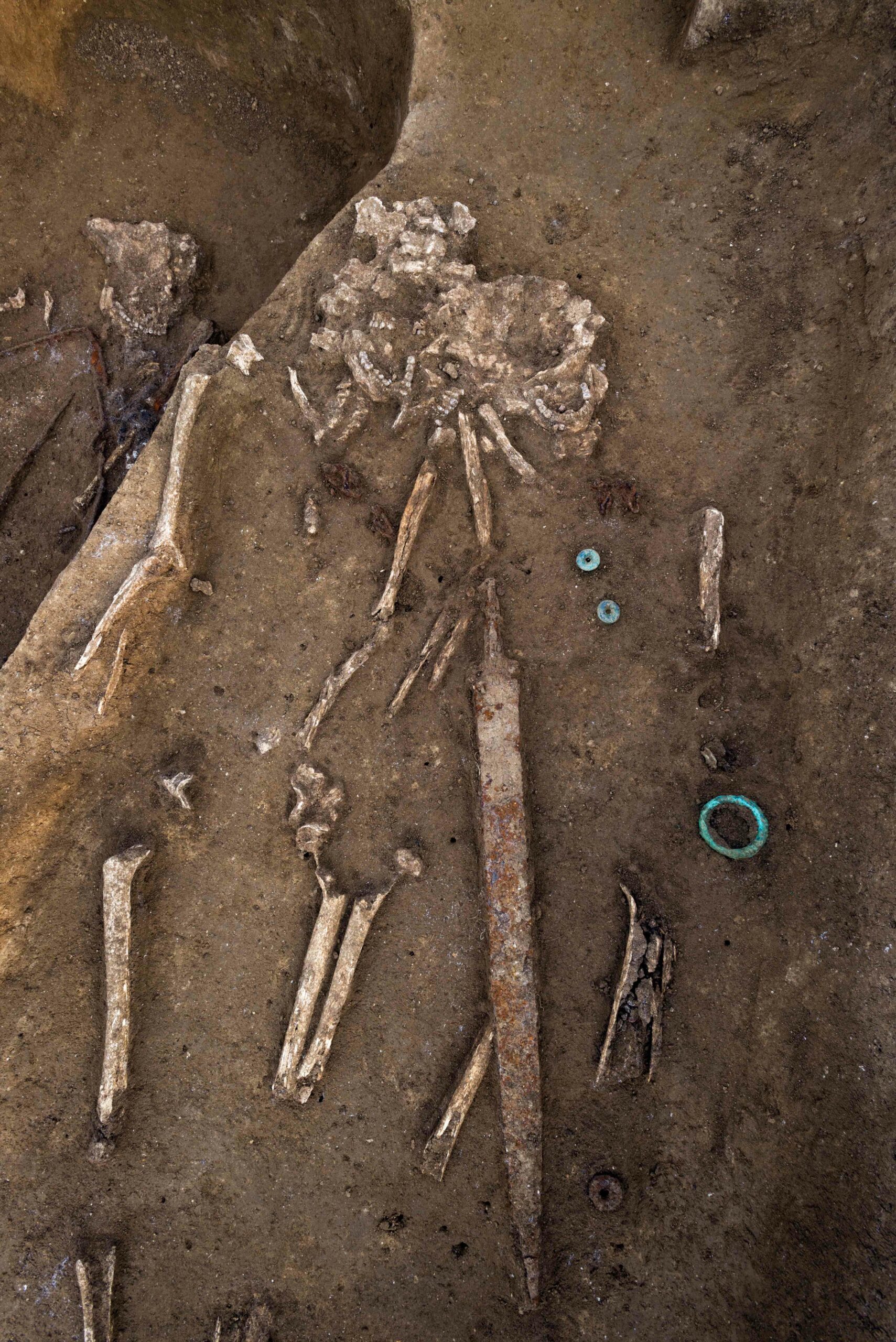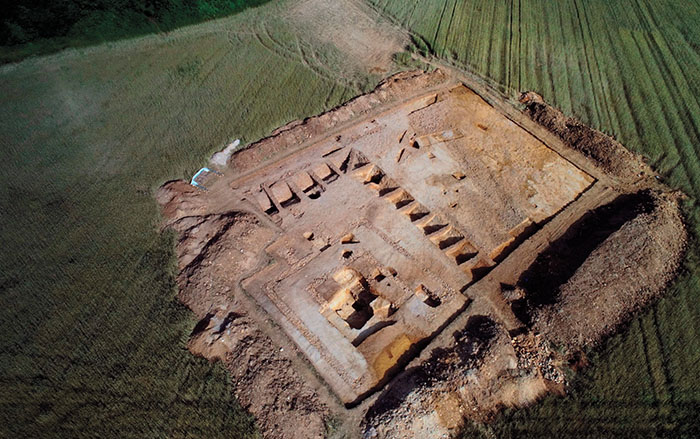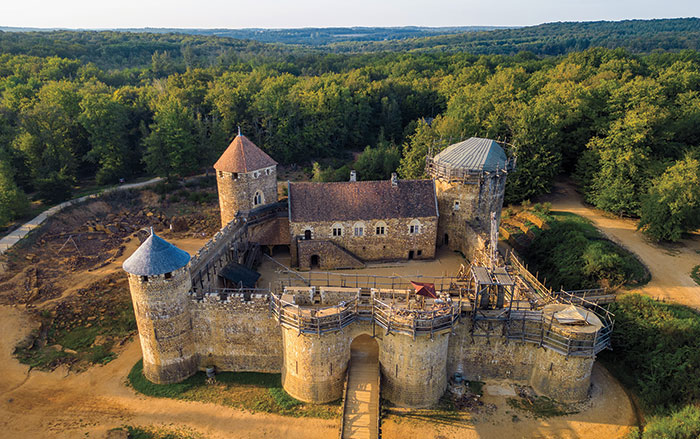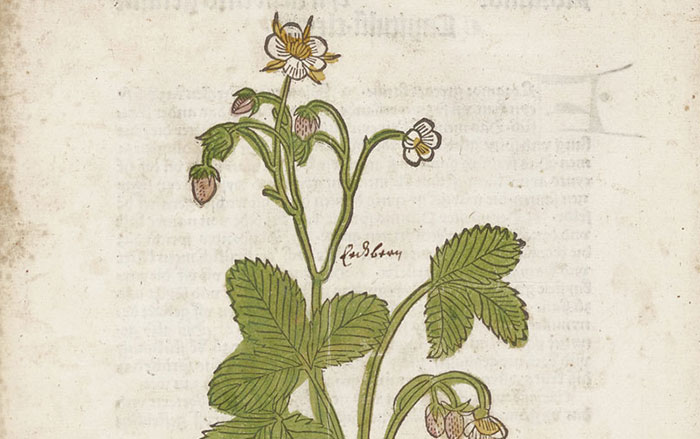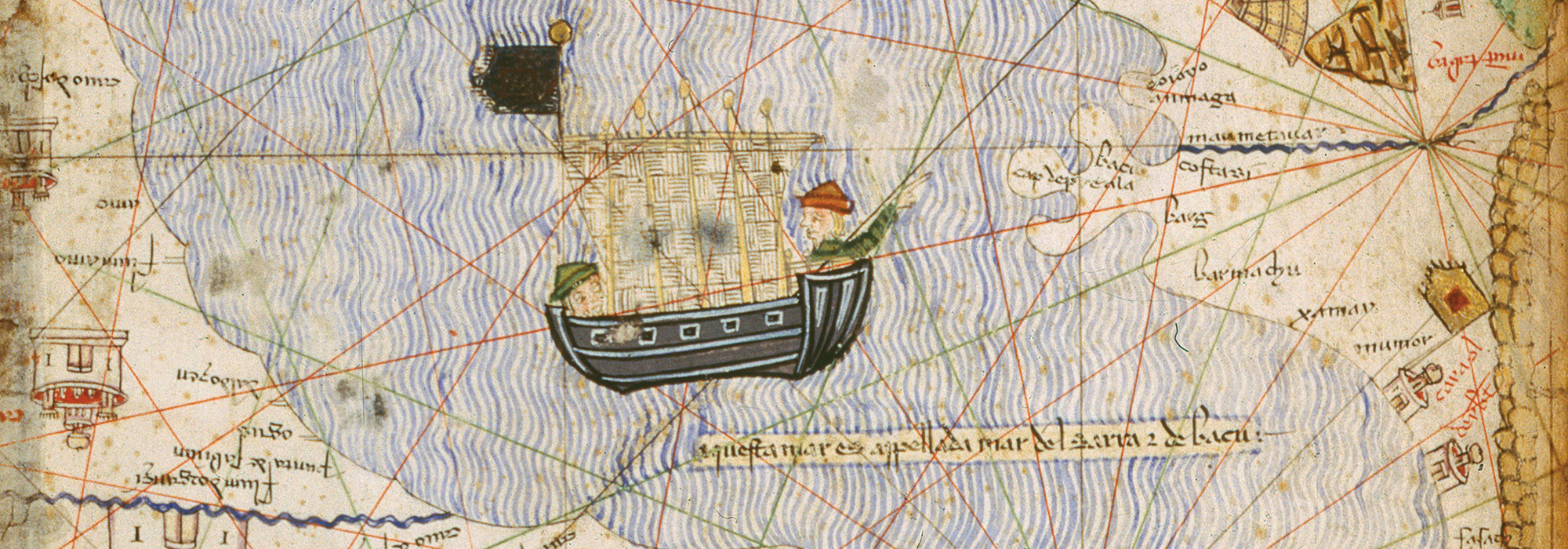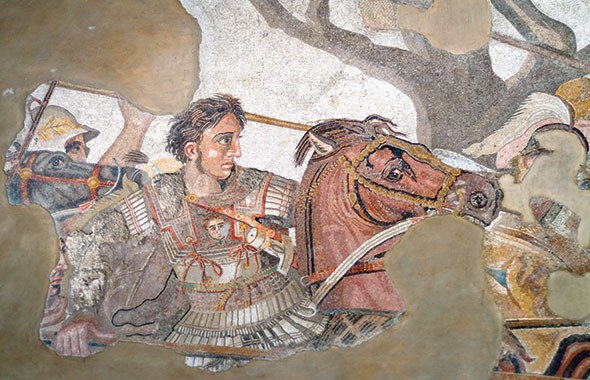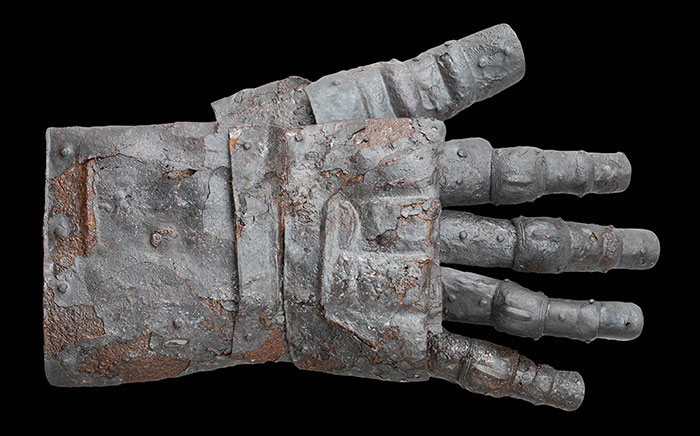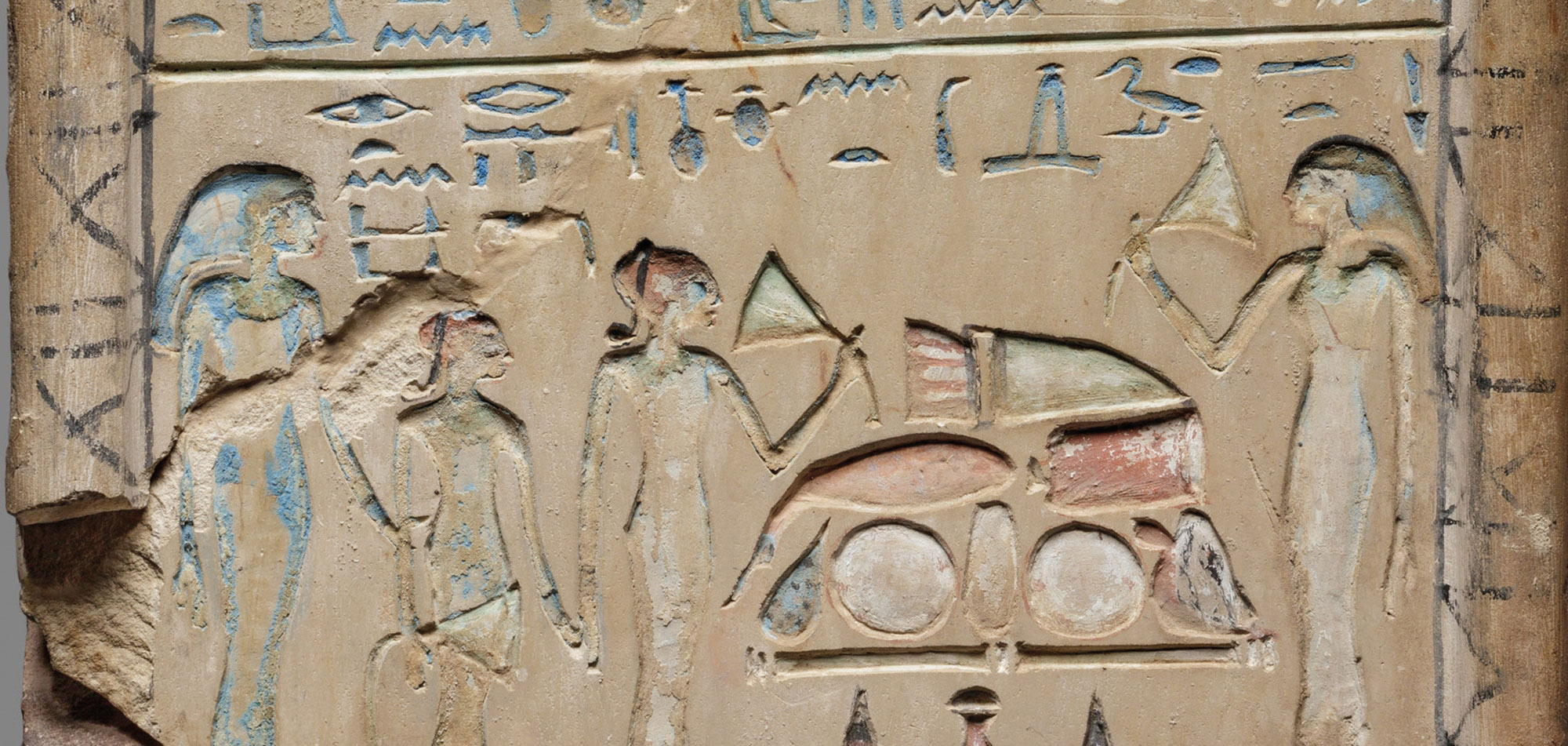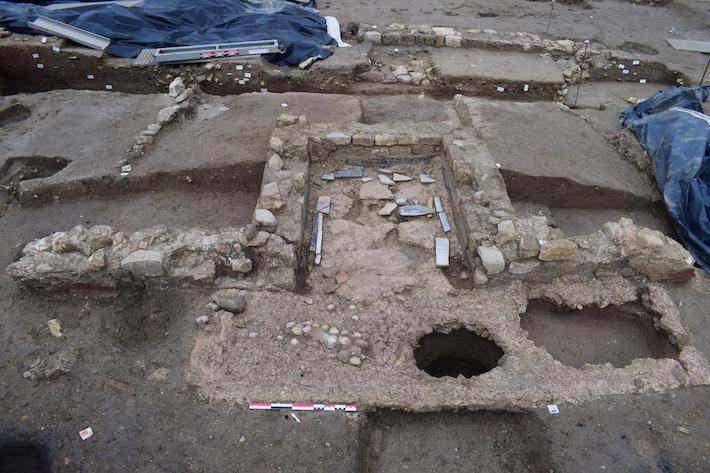
NARBONNE, FRANCE—Excavation of the Robine necropolis, which was discovered in southern France in 2017, has uncovered more than 1,400 graves dating from the first century B.C. to the end of the third century A.D., according to a Live Science report. Researchers from the French National Institute of Preventive Archaeological Research said that the cemetery served the Roman colony of Narbo Martius, and was well preserved by some 10 feet of silt laid down by flooding of the nearby Aude River. More than 100 of the burials contain children’s remains that had been placed in boxes or pits closed with a cover. Most of the adults had been cremated, but some were buried in wooden coffins. Charred food found in the graves, including dates, figs, cereals, and bread, may have been deposited through ceramic libation tubes by family members on Feralia, the last day of the nine-day Roman festival of Parentalia. Stone structures that may have been used as banquet beds for the feasters were also uncovered. To read about excavations of the Roman city of Augustodunum in central France, go to "Gaul's University Town."


